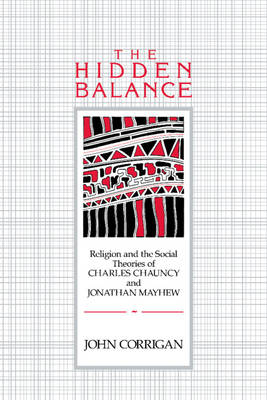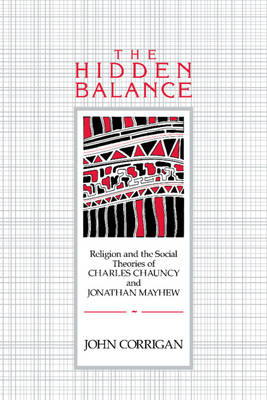
- Afhalen na 1 uur in een winkel met voorraad
- Gratis thuislevering in België vanaf € 30
- Ruim aanbod met 7 miljoen producten
- Afhalen na 1 uur in een winkel met voorraad
- Gratis thuislevering in België vanaf € 30
- Ruim aanbod met 7 miljoen producten
The Hidden Balance
Religion and the Social Theories of Charles Chauncy and Jonathan Mayhew
John Corrigan
Hardcover | Engels
€ 172,95
+ 345 punten
Uitvoering
Omschrijving
Boston Congregationalist ministers Charles Chauncy and Jonathan Mayhew were among the most influential social and religious thinkers in Boston in the mid-eighteenth century. This study argues, against the interpretations of some previous historians, that Chauncy and Mayhew produced a complex but coherent body of ideas, and that these ideas were organized closely and self-consciously around the principle of "balance." Writings on society and government are treated alongside theological works, rather than apart from them, and each man's corpus is placed against the background of English ideas as well as within the context of intellectual and social life in Boston. Chauncy and Mayhew were the leading architects of the mid-eighteenth century New England transition from Puritanism to religious rationalism. They were also instrumental in formulating and popularizing the political and social criticisms that led to the American Revolution. The Hidden Balance illustrates the connections between their religious leadership and their political leadership, and in so doing clarifies our understanding of why Chauncy and Mayhew exercised such a profound influence upon their contemporaries.
Specificaties
Betrokkenen
- Auteur(s):
- Uitgeverij:
Inhoud
- Aantal bladzijden:
- 176
- Taal:
- Engels
Eigenschappen
- Productcode (EAN):
- 9780521327770
- Verschijningsdatum:
- 31/07/1987
- Uitvoering:
- Hardcover
- Formaat:
- Genaaid
- Afmetingen:
- 152 mm x 231 mm
- Gewicht:
- 408 g

Alleen bij Standaard Boekhandel
+ 345 punten op je klantenkaart van Standaard Boekhandel
Beoordelingen
We publiceren alleen reviews die voldoen aan de voorwaarden voor reviews. Bekijk onze voorwaarden voor reviews.










